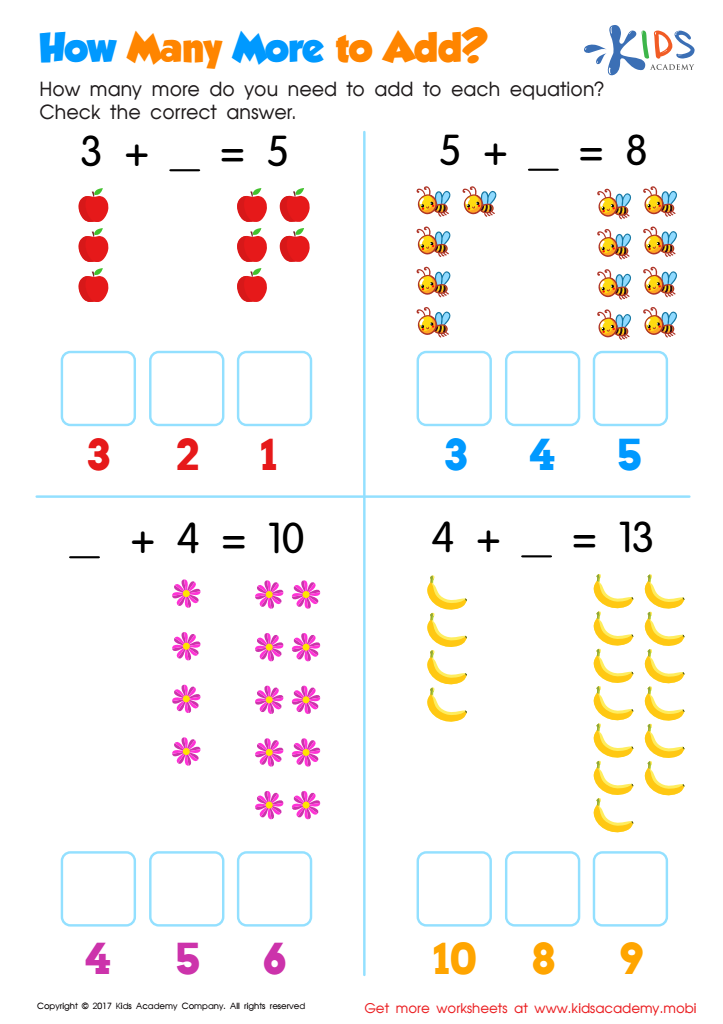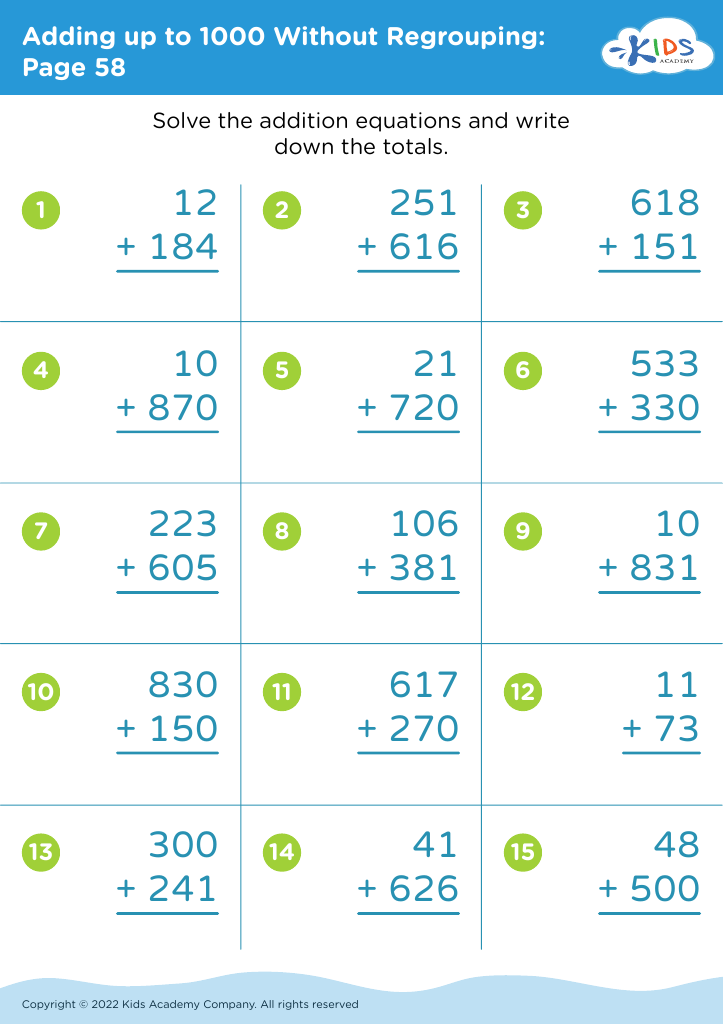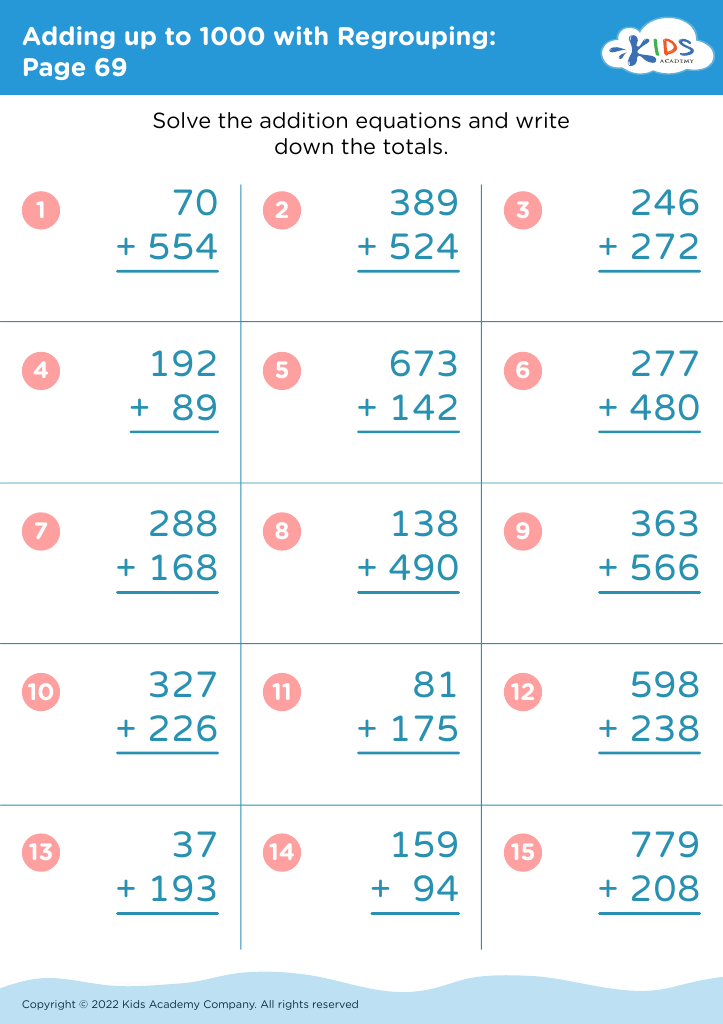Comparison Skills Addition Worksheets for Ages 5-7
4 filtered results
-
From - To
Enhance your child's math abilities with our engaging Comparison Skills Addition Worksheets for ages 5-7! Designed to cultivate critical thinking, these worksheets enable young learners to compare numbers and grasp foundational addition concepts effectively. Through fun and colorful exercises, children will develop their ability to recognize greater or lesser values, fostering their understanding of numerical relationships. Each worksheet is carefully crafted to provide a balance of challenge and enjoyment, ensuring your child stays motivated while mastering essential math skills. Give your little ones the tools they need to succeed in math with our comprehensive and interactive addition worksheets today!


How Many More to Add Worksheet
Comparison skills are fundamental for children aged 5-7 as they form the basis for effective addition and overall mathematical understanding. At this developmental stage, learners begin to grasp concepts of quantity, size, and relationships between numbers. Teaching comparison skills enables children to differentiate between quantities, recognize greater and smaller amounts, and develop a sense of numerical order.
Parents and teachers should care about these skills because they cultivate logical reasoning and critical thinking. For instance, when children can compare sets of objects or numbers, they become adept at visualizing problems and making connections between concepts, which enhances their ability to perform addition. Furthermore, this skill helps them build a strong foundation for more complex math concepts in later years, fostering a positive attitude toward mathematics.
Additionally, promoting comparison skills encourages collaborative learning. As children engage in activities that involve comparing numbers, they develop communication skills and the ability to explain their reasoning to peers. Through guided play and structured activities, educators can create an engaging environment that makes learning fun while ensuring that children are equipped with vital cognitive tools for their academic journey. Investing time in developing these skills can lead to lifelong benefits in problem-solving and analytical thinking.



 Assign to My Students
Assign to My Students




















